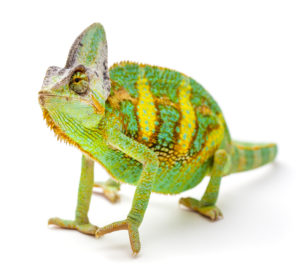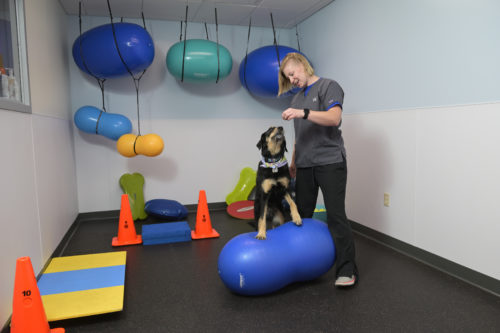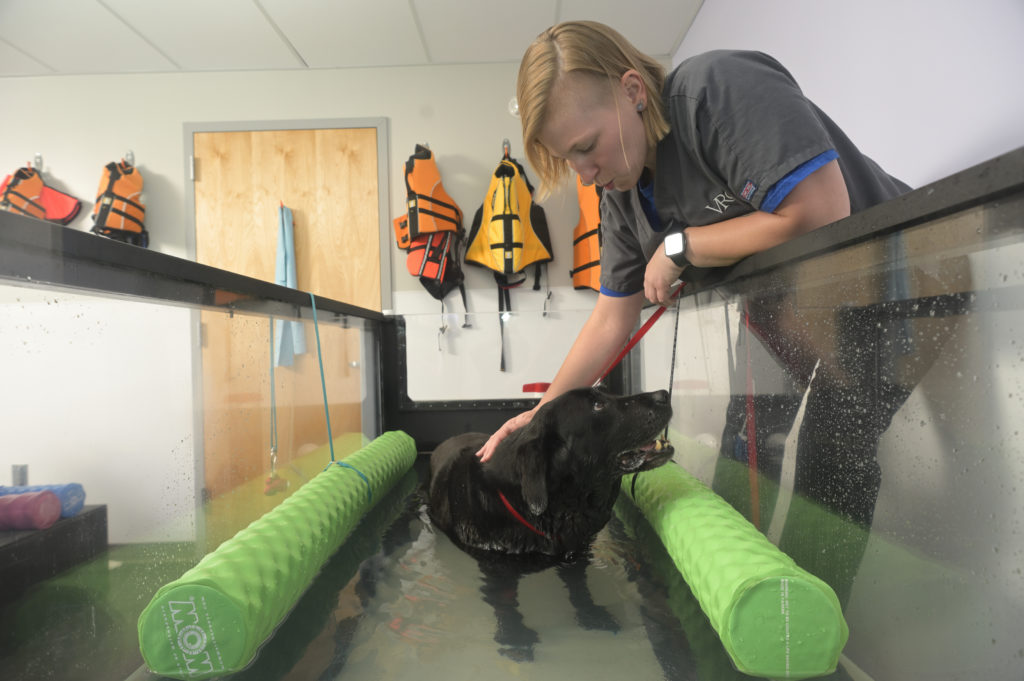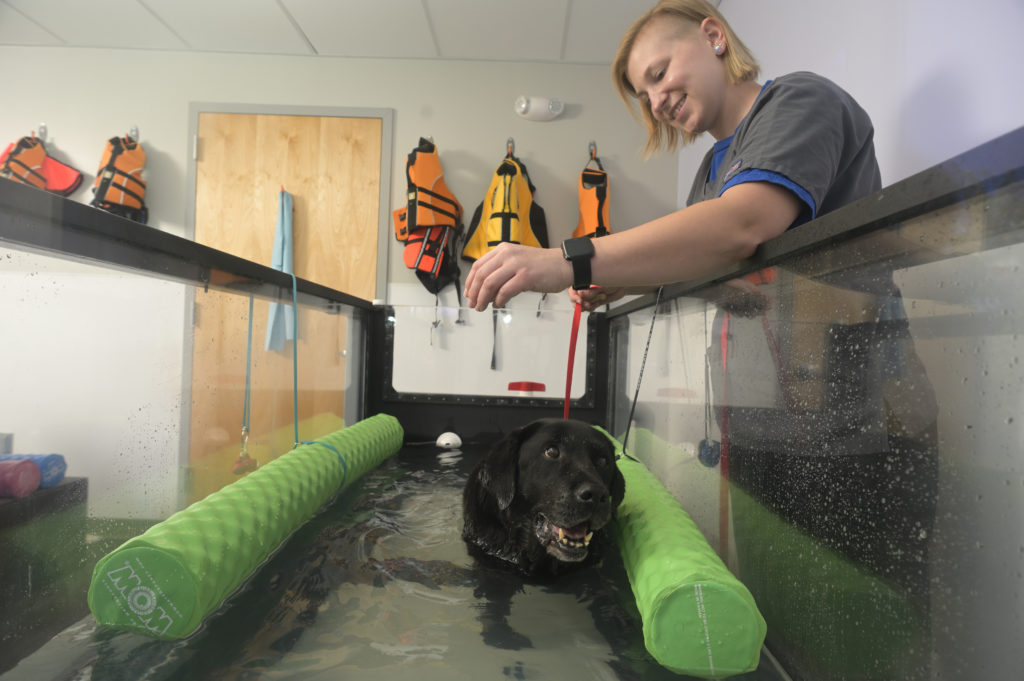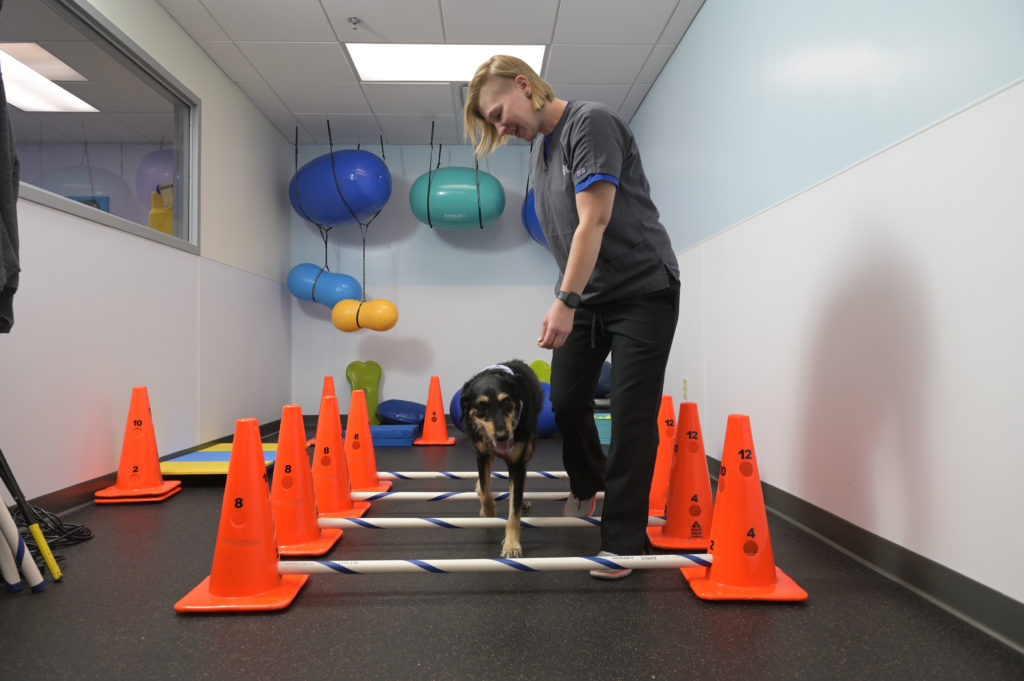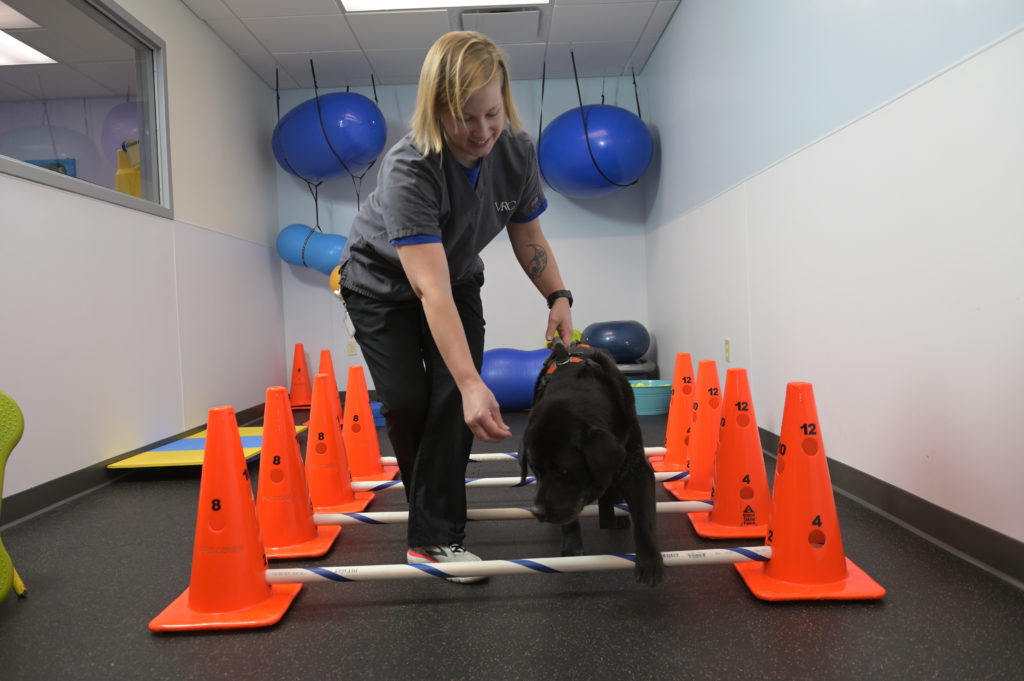Chemotherapy Versus Radiation—What’s the Difference?

A pet’s cancer diagnosis can be overwhelming, and explanations about cancer types, prognosis, and treatment options may be difficult to comprehend when you are blindsided by your beloved companion’s illness. If your family veterinarian has diagnosed cancer in your pet, the Veterinary Referral Center’s (VRC) oncology department will consult with them to design a treatment plan that best addresses your pet’s cancer, and ensure you understand every step of the diagnosis, treatment, and prognosis. Your pet’s treatment likely will include chemotherapy and/or radiation, two common cancer treatments that our oncologists use, independently or combined with other modalities, such as surgery, to target cancer cells.
What is chemotherapy?
Chemotherapy is the administration of medication that can kill or slow the growth of cancer cells. The medications are often the same as those used for human cancer patients, and your pet’s exact medications will depend on their cancer type. Your pet may receive one chemotherapy medication at a time, or a combination of medications to target the cancer.
How is chemotherapy administered to pets?
Chemotherapy medications may be administered by various routes; however,
many are given intravenously (IV) to reach immediate high blood levels. If your pet is prescribed IV chemotherapy administration, our hospital has a dedicated chemotherapy suite to ensure their comfort and safety during treatments. Some chemotherapy medications are available in pill form, which may be administered to your pet in the hospital or in the comfort of your home.

What cancer types are treated with chemotherapy?
Chemotherapy is part of almost every cancer patient’s treatment plan. The medications spread through your pet’s body via the bloodstream, treating the whole system instead of targeting only a specific area. Chemotherapy is useful for cancer treatment in the following situations:
- When we know your pet’s cancer has metastasized (i.e., spread) from the primary site to another place in the body
- If your pet’s cancer type has a high likelihood of metastasis
- If your pet has other health problems that make him a poor surgery or radiation candidate
- If your pet’s cancer is disseminated throughout his body instead of growing as a single mass
What are chemotherapy’s side effects in a pet?
Many pet owners are pleasantly surprised, because veterinary chemotherapy does not cause as many side effects as human chemotherapy. The most common side effect in pets receiving chemotherapy is mild nausea, which can be medicated. We believe the treatment for cancer should never be worse than the disease itself, and we strive to keep your pet’s life as normal as possible during treatments.
What is radiation therapy?

Radiation therapy is the use of a focused radiation beam to kill cancer cells possibly left behind following surgery or with newer techniques growing within a mass itself when surgery is not an option. Radiation breaks the DNA inside cancer cells so the cells can no longer replicate. Treated cells die when they try to divide, and are cleared away by the body. Radiation can be used to:
- Slowly shrink a mass when surgery is not possible
- Shrink a tumor before surgical excision
- Kill microscopic cancer cells following an incomplete surgery
- Relieve pain in patients who cannot undergo surgery or if surgery is not elected
How is radiation therapy administered to pets?
Radiation treatments used to treat residual disease when surgery is not complete are administered daily, Monday through Friday, for 16 to 20 treatments. This is a form of definitive radiation. Palliative therapy, on the other hand, is used for pets to help alleviate pain when surgery is not elected or is not possible. Palliative radiation is typically administered weekly for four weeks, or daily over the course of a week, to alleviate pain and hopefully improve quality of life.
Pets are sedated or anesthetized during treatments so they remain completely still, and the radiation beam can be precisely focused on the tissue to be treated, sparing nearby healthy tissue from possible side effects.
In addition to providing the conventional radiation therapy techniques discussed above, VRC is one of only a few U.S. veterinary hospitals that has a Halcyon system, which is capable not only of intensity modulated radiation therapy (IMRT) but can also perform a treatment called stereotactic radiation therapy (SRT). SRT is similar to CyberknifeⓇ, which is used in human hospitals. It allows our veterinary radiation oncologists to deliver radiation treatments with extreme precision in fewer doses, making treatment possible for previously untreatable cancers.
What side effects are expected after a pet has radiation therapy?
Most pets experience few, if any, side effects from radiation therapy. The most common side effect is called moist desquamation, which is similar to a sunburn, is often seen as treatment ends, and may cause redness of the skin followed by a moist appearance before a scab begins to form on the skin. The scab should heal and fall off shortly after treatments end. Also, since your pet must be sedated or anesthetized for treatments, they may seem tired and want to rest when they return home. This is a side effect of the anesthesia, not the radiation treatments.
Our veterinary team will work with your family veterinarian to decide the best treatment options for your pet’s cancer. Please do not hesitate to contact us with any questions, or to consult with our oncology department.






 Email
Email

